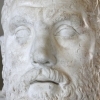Roman Emperor Titus
79 - 81 A.D.
Titus Flavius Caesar Vespasianus Augustus
Busts, Statues, Coins, Information, Maps, Images, and More
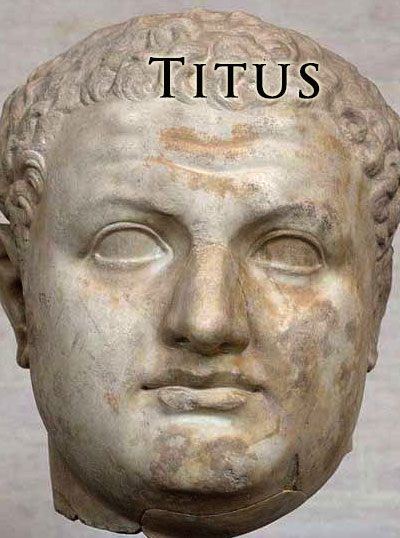
Titus: From Ruthless Conqueror to Beloved Emperor
Titus, the Roman emperor who reigned from 79 to 81 AD, presents a fascinating paradox. Before ascending the throne, he was a ruthless military commander who played a key role in the brutal siege and destruction of Jerusalem. Yet, upon becoming emperor, he surprised many by transforming into a generous and popular ruler.
Early Life and Rise to Power
Born in 39 AD, Titus belonged to the Flavian dynasty. His father, Vespasian, was a career soldier who eventually rose to claim the imperial purple in the chaotic Year of the Four Emperors (69 AD). Titus, from a young age, displayed a natural aptitude for military pursuits. He honed his skills in Britain and Germany before joining his father's campaign in Judea, which erupted into the First Jewish-Roman War (66-73 AD).
The war was a bloody affair, with Roman forces determined to crush the Jewish rebellion. Titus, ruthless and ambitious, proved himself a capable commander. In 70 AD, he led the siege of Jerusalem, a pivotal moment in the conflict. The siege resulted in the capture and destruction of the city, along with the Second Temple, a sacred site for Judaism. This act of devastation cemented Titus' reputation as a merciless conqueror.
A Controversial Ascension
When Vespasian secured the emperorship in 69 AD, Titus became heir apparent. This succession marked a historic moment – for the first time, a Roman emperor would be succeeded by his biological son. However, Titus' association with the brutal Judean campaign made him an unpopular figure amongst the Roman populace. Many feared his reign would be marked by violence and tyranny.
Transformation and Legacy
However, upon becoming emperor in 79 AD following his father's death, Titus defied expectations. He surprised everyone with his generosity and compassion. He oversaw the completion of the Flavian Amphitheatre, more popularly known as the Colosseum, and inaugurated it with extravagant games lasting over 100 days. This act was viewed as a way to appease the Roman people and distract them from economic hardships.
Perhaps his greatest test came in 79 AD with the eruption of Mount Vesuvius, which devastated the cities of Pompeii and Herculaneum. Titus responded swiftly, organizing rescue and relief efforts for the survivors. The following year, a fire ravaged Rome. Once again, Titus displayed his leadership, overseeing the rebuilding of the city.
These acts of benevolence earned him the respect and admiration of the Roman people. His reputation transformed from a ruthless general to a beloved emperor.
A Short Reign and Enduring Legacy
Sadly, Titus' reign was cut short. He died in 81 AD from a sudden illness, leaving behind a complex legacy. Though his reign lasted only two years, he left a significant mark on Roman history. He completed the Colosseum, a monument that continues to stand as a symbol of the Roman Empire. More importantly, he demonstrated the qualities of a good emperor – generosity, compassion, and decisive leadership in times of crisis.
The Enigma of Titus
Historians continue to debate the reasons behind Titus' dramatic transformation. Was it a calculated move to gain public favor, or did he genuinely mature into a more compassionate leader? Perhaps the answer lies somewhere in between. Regardless of the motivation, Titus' story offers a valuable lesson about leadership and the capacity for change.
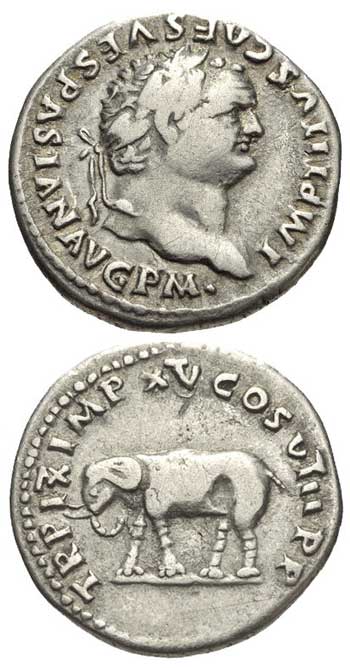
More to Come
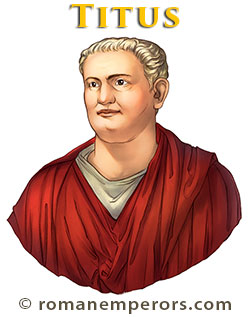
"Generous"
Titus was the second of the Flavian Emperors, chosen by his father Vespasian to succeed him or "no one will." Titus was the eldest son of Vespasian, and had been trained as his chief assistant. He served with Vespasian as consul and censor, and shared with him the imperium and tribunician power. While he was campaigning against the Jews in Jerusalem he met and fell in love with Berenice, the daughter of Herod Agrippa I. Titus became emperor of Rome in 79 A.D. 10 years after his fasther Vespasian became emperor. Titus was best known for his generosity. During his reign some unavoidable disasters happened, a fire broke out in the city of Rome, also a plague killed thousands of its citizens, and Mount Vesuvius erupted in 79 A.D. burying the cities of Herculaneum and Pompeii under its tidal wave of mud, ash, and pumice. Pliny the Younger gave an eyewitness testimony to the event. Titus gained popularity like his father but suddenly died in 81 A.D. at the age of 42. He was succeded by his younger brother, Domitian. The famous Arch of Titus on the Via Sacra in Rome was erected in his honor to commemorate his victory over the Jews.

















Latest



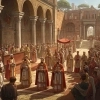
Popular




Useful



